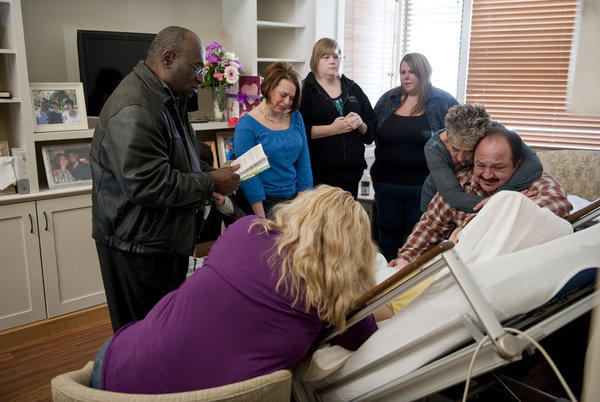Bereavement coordinators serve as both physical and spiritual guides for the terminally ill and their loved ones. They guide individuals through the healthy stages of grieving. Bereavement coordinators help facilitate ongoing follow-up counseling for both groups and individuals as needed.
Hospice services don’t end with the passing of a patient. During times of loss, families and loved ones left behind are particularly vulnerable to a host of emotions and confusing feelings.
The bereavement coordinator maintains contact with the family through individual counseling, sending cards and letters, or recommending books that might help them. Each family is served according to its unique set of circumstances and needs. Hospice can also connect families to community support groups or grief psychologists.

